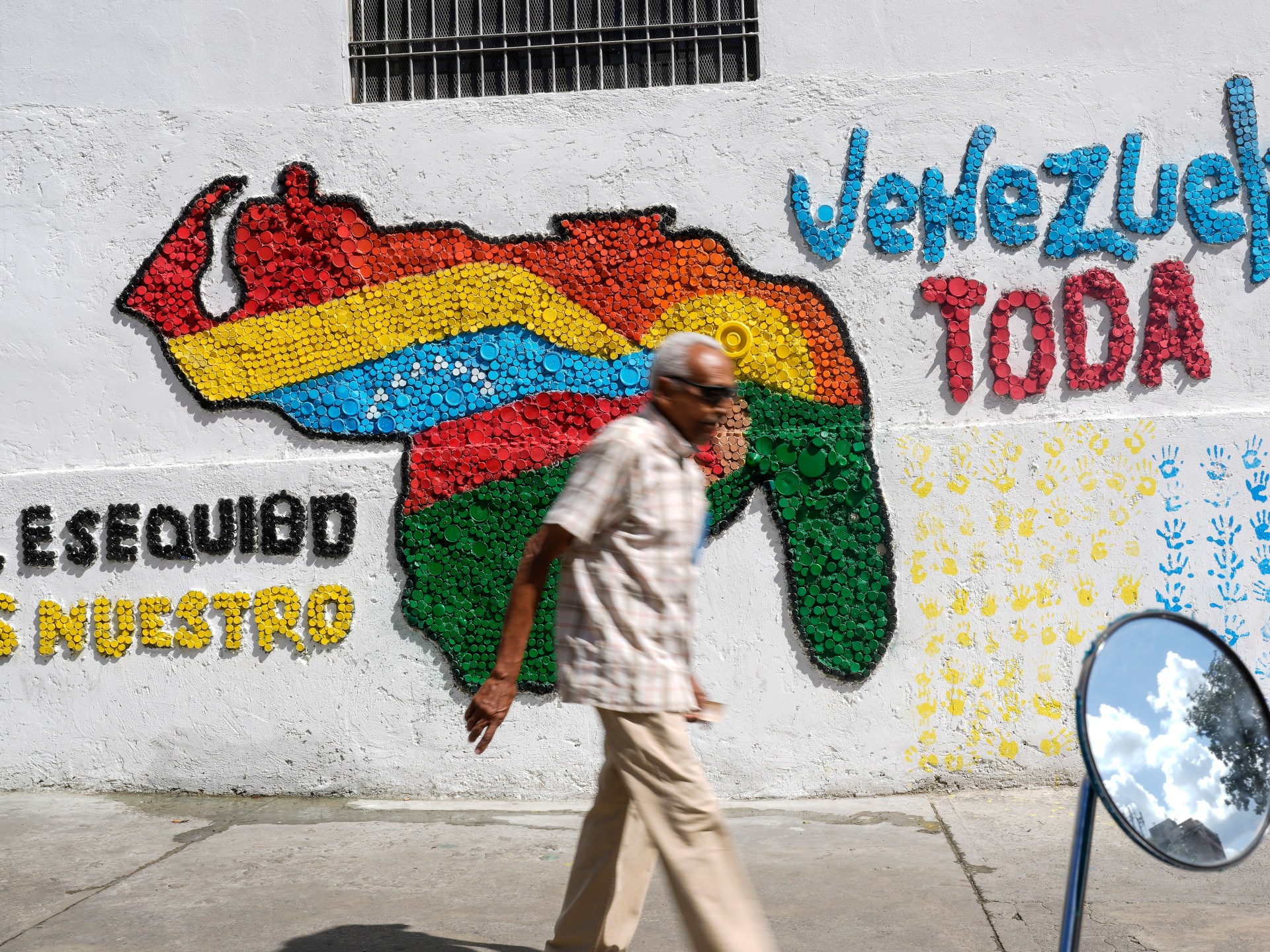In the referendum Venezuelan voters were asked whether they support establishing a state in Essequibo.
Venezuela has claimed it has large public support to take over an oil-rich region across the border in Guyana.
The referendum result, announced on Monday, came after the International Court of Justice (ICJ) warned Caracas against “annexation” of the territory called Essequibo, which has long been ruled by Guyana.
“It has been a total success for our country, for our democracy,” President Nicolas Maduro told supporters gathered in the capital.
Guyana President Mohamed Irfaan Ali said his government is working continuously to ensure the country’s borders “remain intact” and said people have “nothing to fear over the next number of hours, days, months ahead”.
What were voters asked?
Maduro claimed that the referendum had a “very important level of participation”.
After the voting ended on Sunday, the National Electoral Council in Venezuela claimed to have counted more than 10.5 million votes.
But only a few voters could be seen at polling sites throughout the voting period, news wires reported.
“I came to vote because Essequibo is ours, and I hope that whatever they are going to do, they think about it thoroughly and remember to never put peace at risk,” merchant Juan Carlos Rodríguez, 37, told The Associated Press news agency after voting at a centre in Caracas where only a handful of people were in line.
Each voter was asked five questions, including if they agreed with creating a new state called Guayana Esequiba in the Essequibo region, granting its population Venezuelan citizenship, as well as identity cards, and incorporating that state into the map of Venezuelan territory.
The electoral council, however, did not explain whether the number of votes was equivalent to each voter or if it was the sum of all the answers.
It is also not yet clear how Maduro will implement the results of the vote.
‘Textbook example of annexation’
The referendum in Venezuela was held after the ICJ urged the country to refrain from “taking any action” that could alter the status quo in the region.
On Friday, the international court president Joan E Donoghue said statements from Venezuela’s government suggest it “is taking steps with a view toward acquiring control over and administering the territory in dispute”.
“Furthermore, Venezuelan military officials announced that Venezuela is taking concrete measures to build an airstrip to serve as a ‘logistical support point for the integral development of the Essequibo’,” she said.
But Guyana has always feared that the referendum could be a pretext for a land grab.
“The collective decision called for here involves nothing less than the annexation of the territory in dispute in this case,” Paul Reichler, an American lawyer representing Guyana, told the ICJ. “This is a textbook example of annexation.”

Essequibo is larger than Greece and rich in minerals. It also gives access to an area of the Atlantic where energy giant ExxonMobil discovered oil in commercial quantities in 2015, drawing the attention of Maduro’s government.
Caracas considers Essequibo as its own because the region was within its boundaries during Spanish colonial times.
The Guyanese government insists on retaining the border determined in Paris in 1899 by an arbitration panel while claiming that Venezuela had agreed with the ruling until it changed its mind in 1962.
#Venezuela #claims #large #support #annexing #oilrich #Guyana #territory #News











Leave a Reply